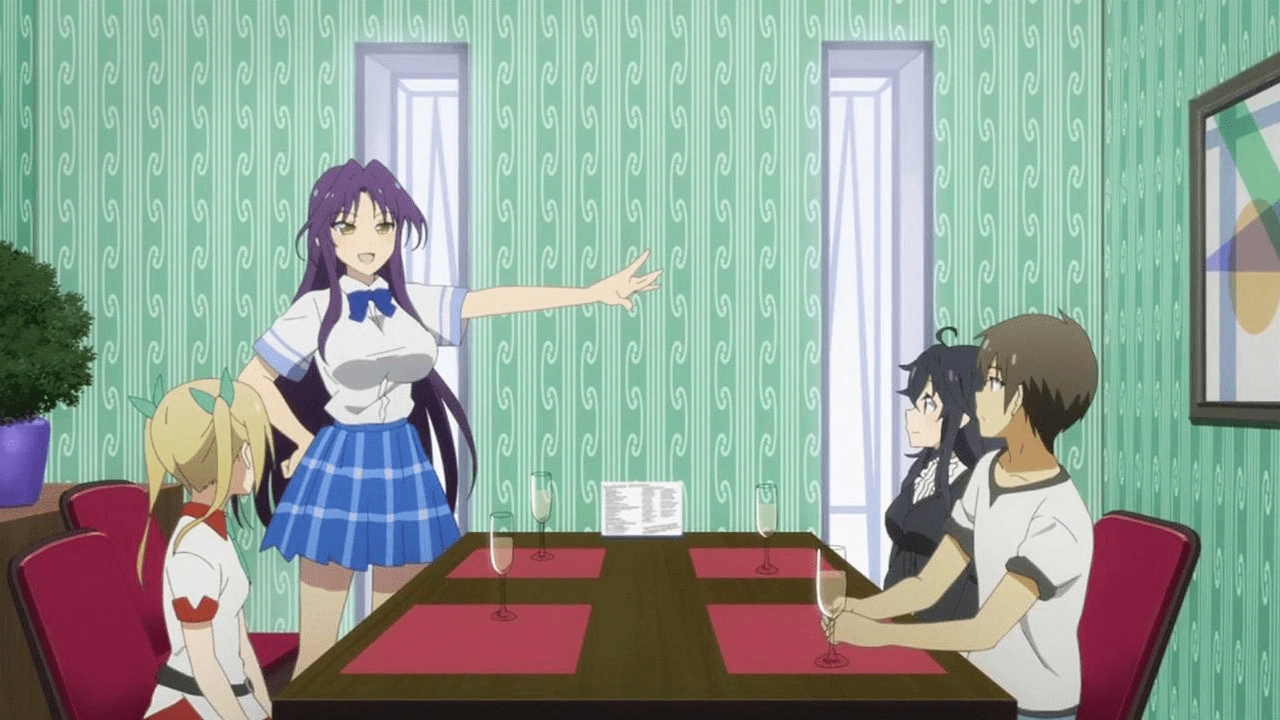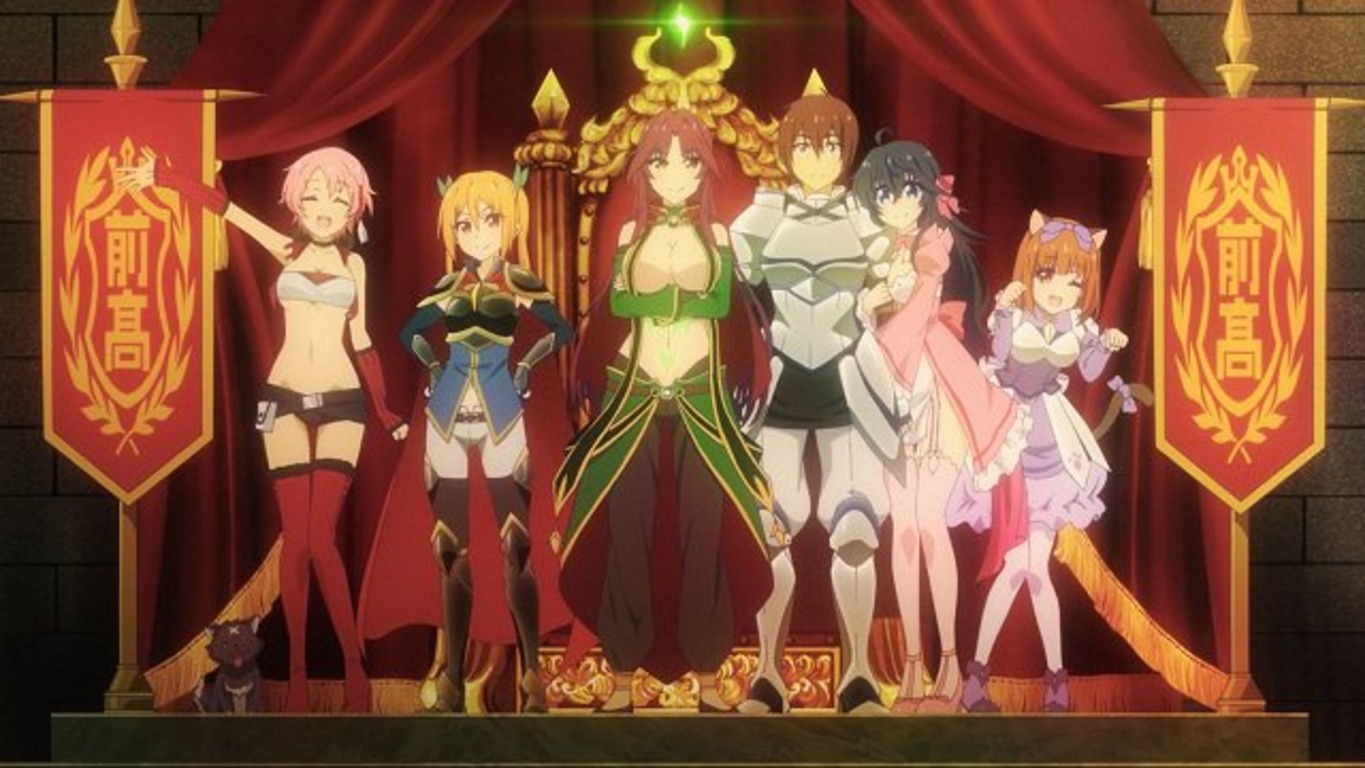In a world where virtual reality and online gaming have become sanctuaries for many, “And You Thought There Is Never a Girl Online?” (Netoge no Yome wa Onnanoko ja Nai to Omotta?) takes a surprisingly deep dive into the psychological implications of excessive gaming, exploring the blurred lines between the digital and physical realms. The anime, initially presenting itself as a light-hearted, fan service-filled romcom, unexpectedly treads into the darker territories of gaming addiction and psychological escapism, echoing the metaphorical entrapment popularized by “Sword Art Online” (SAO).
Ako Tamaki, a seemingly typical high school girl, finds solace and identity in the online RPG “Legendary Age” (LA), where the boundaries between her virtual and real life begin to dissolve.
The anime, adapted from the light novel by Shibai Kineko and illustrated by Hisasi, initially lures viewers into a comedic narrative, only to gradually unveil a poignant exploration of Ako’s psychological descent into the virtual world.
The Unveiling Shift: From Comedic Exploits to Psychological Exploration
Ako’s journey from a quirky, game-obsessed teenager to a girl who struggles to discern between the virtual and real worlds serves as a compelling narrative arc that challenges viewer expectations. The initial episodes, filled with humorous and somewhat embarrassing exploits, subtly build towards a more serious exploration of the psychological implications of gaming. Ako’s inability to differentiate between the two worlds becomes not just a source of comedy, but a lens through which the series explores deeper, more unsettling themes.

In a striking parallel to SAO, where players become physically trapped within the game, Ako’s mental and emotional entrapment within LA becomes a poignant exploration of voluntary escapism.
Her retreat into the virtual world, driven by real-world traumas and anxieties, becomes a self-imposed imprisonment, highlighting a darker aspect of gaming culture and addiction.

Reincarnation: A Nod to Isekai and a Metaphor for Escapism
“And You Thought…” cleverly intertwines the popular isekai trope of reincarnation, providing a metaphorical framework for exploring Ako’s psychological state. In a clear nod to the oversaturated reincarnation subgenre, Ako attempts to “reincarnate” within LA, a process reserved for those who forsake real-world obligations to devote themselves entirely to the game. This act of transferring stats and items to a new character becomes a symbolic gesture of Ako’s desire to escape and reinvent herself within the digitalrealm.
And you thought there is never a girl online? ✔️ Ich fand den wirklich in Ordnung gewesen. – Ako ist echt eine tolle MC, aber könnte auch etwas auf den zeiger gehen. Ich finde es aber toll, das der Harem nicht so heraus sticht, sondern eher auf die Romance sich konzentriert. 😄 pic.twitter.com/g7JXupKXbh
— HanzotakuTV 📺🍜 (@HanzotakuTV) October 5, 2023
The reincarnation trope, often utilized in isekai anime to explore new worlds and adventures, is recontextualized here as a mechanism for exploring Ako’s psychological escape and the darker aspects of gaming culture.
It becomes a powerful metaphor for the lengths to which individuals might go to escape the traumas and challenges of the real world, providing a stark contrast to the more adventurous and fantastical depictions of reincarnation in other anime series.
Conclusion: A Mirror Reflecting the Darker Corners of Gaming Culture
“And You Thought There Is Never a Girl Online?” unexpectedly serves as a mirror reflecting the darker corners of gaming culture and psychological escapism. By juxtaposing light-hearted fan service and comedic exploits with a deeper exploration of mental health and gaming addiction, the anime provides a nuanced perspective on the impacts of virtual worlds on individual psychology.

Ako’s journey, while initially presented with a comedic lens, evolves into a poignant narrative that explores the blurred boundaries between reality and virtuality,
providing viewers with a thought-provoking exploration of gaming culture, escapism, and psychological entrapment. The series, while maintaining its harem-esque and fan service elements, unexpectedly invites viewers to reflect on the darker, often overlooked aspects of gaming and online culture.










